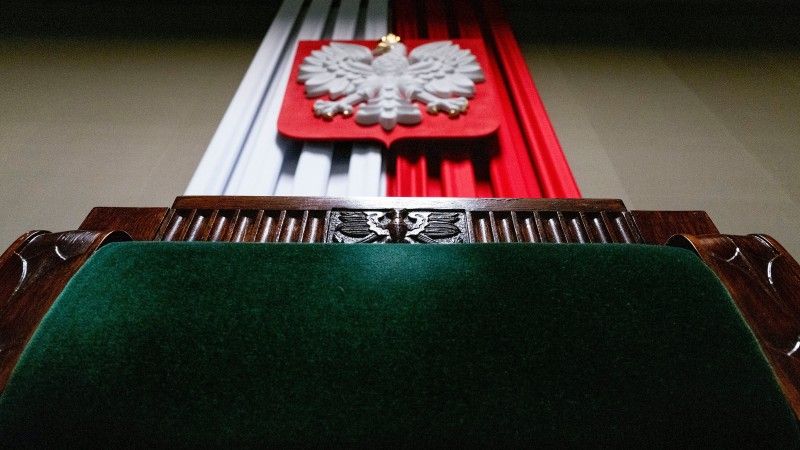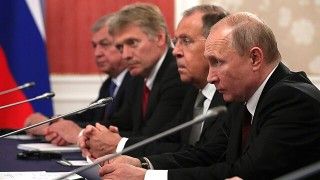- WIADOMOŚCI
- ANALIZA
Defence budget as an element of civilian oversight of the military
The Polish Parliament (Sejm) has passed the national budget, which includes a record-high defence budget of PLN 124.3 billion. This milestone offers an excellent opportunity to discuss its significance for the country’s development and its armed forces. Crucially, it highlights the role of the budget process in exercising civilian democratic control over the military - as Lt. gen. (r) Andrzej Fałkowski, former Deputy Head of the General Staff of the Polish Armed Forces, writes in for Defence24.pl.

Photo. sejm.gov.pl
One of the principles of democratic civilian control over the military is the standard that government and parliament set and oversee military spending. This principle is elaborated in greater detail in Guidebook on the Essential Principles of Democratic Control of the Armed Forces by A. Fałkowski and V. R. Ratchev (OSCE, 2024).
This principle, emphasized by the OSCE Code of Conduct on Politico-Military Aspects of Security, operates along two key dimensions.
First, it remains oriented towards the national socioeconomic context. The classic question of “guns or butter” reflects a significant economic, theoretical, and political dilemma. This choice illustrates a critical decision governments must make, balancing military needs against civilian welfare. The trade-off suggests that resources allocated to one sector must be drawn from another unless economic productivity is increased. Higher productivity can ease this difficult choice between two equally essential needs: defense and economic development.
This principle also seeks to avoid the “security dilemma” among neighboring countries. This dilemma remains one of the most serious sources of international conflicts or wars. The security dilemma arises when actions taken by one state to enhance its security prompt responses from other states, ultimately reducing the original state’s security. Increased military spending and arms acquisitions can exacerbate such dilemmas.
Transparency in military expenditures, procurement, and force development is the most effective means of mitigating mutual suspicion among neighbors. Parliamentary approval of military budgets, acquisitions, and reforms ensures the necessary transparency for national democratic oversight of the armed forces while fostering regional trust and stability.
In Poland, civilian and democratic control over the military includes discussions and analyses during the planning and implementation of the Ministry of Defence budget. These activities involve debates in the Sejm, the Senate, their respective Defence Committees, and other relevant committees, as well as audits conducted by the Supreme Audit Office (NIK). Within a few months of the fiscal year’s end, the Council of Ministers submits a report to the Sejm on budget implementation and public debt levels. The Sejm (Parliament) reviews this report and grants or withholds discharge to the Council of Ministers after considering NIK’s opinion within 90 days of submission.
The defence budget should be as transparent as possible. This includes expenditures from the Armed Forces Support Fund (FWSZ), which accounts for over PLN 62 billion, or approximately one-third of the total defense spending of PLN 186.6 billion. These funds, primarily allocated for arms procurement, equipment, and modernization, must be clear and comprehensible to taxpayers.
However, the lack of open debate and public oversight over these expenditures, coupled with financial secrecy claimed by institutions like BGK (Bank Gospodarstwa Krajowego), is unacceptable. Democracies thrive on open discussions about government spending financed by taxpayers.
Striking the right balance in budget construction is also essential. A budget that is too general lacks transparency, while one that is overly detailed becomes incomprehensible to the average citizen. Appropriate transparency not only facilitates public understanding but also combats corruption.
Some countries impose legal limits on military spending as a percentage of GDP or total government expenditures. These legal frameworks help prevent the military from becoming excessively powerful or autonomous.
In 2024, Poland emerged as a NATO leader in terms of defense spending, which is projected to reach 4.7% of GDP in 2025, securing its position at the forefront.
In this context, a classic question in defence economics arises: how much is enough? I continue to maintain my opinion that setting parametric spending levels in the state budget is a misunderstanding. If such principles were applied to other public expenditures, such as education or healthcare, we might not need a parliament at all, and civilian democratic oversight over how much we spend and on what would become a fiction.
In Poland, we significantly exceed the minimum percentage threshold for defense spending established in the Homeland Defence Act (Article 40, at least 3% of GDP in 2023 and subsequent years). I hope Poland can afford this. It is clear that times are tough and defence spending is necessary. However, the question always remains: how much money is enough for defense, and how much is needed for the state’s other activities? I insistently repeat that a strong country with a robust economy and a developed industry, including the defense sector, can itself serve as a deterrent force.
Every state budget, including for defence, is a political decision. No one truly knows whether it should be 4.7% or 10%.
For example, consider Ukraine, where, until 2013, maintaining a balanced level of defence capabilities was not a priority for either the government or society. Typically, the percentage of the national defence budget relative to GDP never exceeded 1% during this period. Moreover, from 1992 to 2013, Ukrainian authorities actively sold off military stockpiles left over from Soviet times, doing so in an atmosphere of complete public indifference. This indicates that discussions on “guns versus butter” in Ukraine before Russia’s attack always leaned toward “butter” and fully aligned with the principle of minimal sufficiency in defense budgeting.
Only after 2014, when Ukraine faced armed aggression from Russia, did defense spending focus on building a strong military within the limits of the approved state budget.
What is happening in Ukraine now? In reality, no one knows the exact amount spent on defence. Significant financial support, along with material aid in the form of weapon donations, equipment, ammunition, and logistical support, is challenging to estimate.
According to SIPRI’s Trends in World Military Expenditure, 2022, after just one year of war, Ukraine’s defence spending skyrocketed to $44 billion, a more than sixfold increase (640%) compared to 2021, marking the largest documented rise in modern history. In absolute numbers, Ukraine is now ranked 12th globally, while Poland ranks 14th (Global Firepower 2024). This proves that money is a critical element of warfare: pecunia nervus belli. Conducting armed conflict depends on the amount of money “pumped” into it.
Through the regulation of military expenditures, democratically elected civilian leaders can maintain oversight and decision-making authority over the armed forces, preventing excessive military empowerment or independence.
By limiting military spending, governments can allocate resources to key civilian sectors such as healthcare, education, and infrastructure, ensuring that the military remains under civilian control rather than determining its own budget and priorities.
Excessive military spending could lead to disproportionate militarization of society, where the military wields significant power and influence, potentially undermining principles of civilian oversight and democratic governance.
Military resources must be allocated according to democratic priorities and values, balancing national security demands with the population’s welfare.
This involves setting budget limits and oversight mechanisms to ensure that military spending aligns with democratic priorities and values.
Democratic governments establish budgeting processes that require military expenditures to be approved by democratically elected bodies.
Lt. gen. (r) Andrzej Fałkowski, former Deputy Head of the General Staff of the Polish Armed Forces















